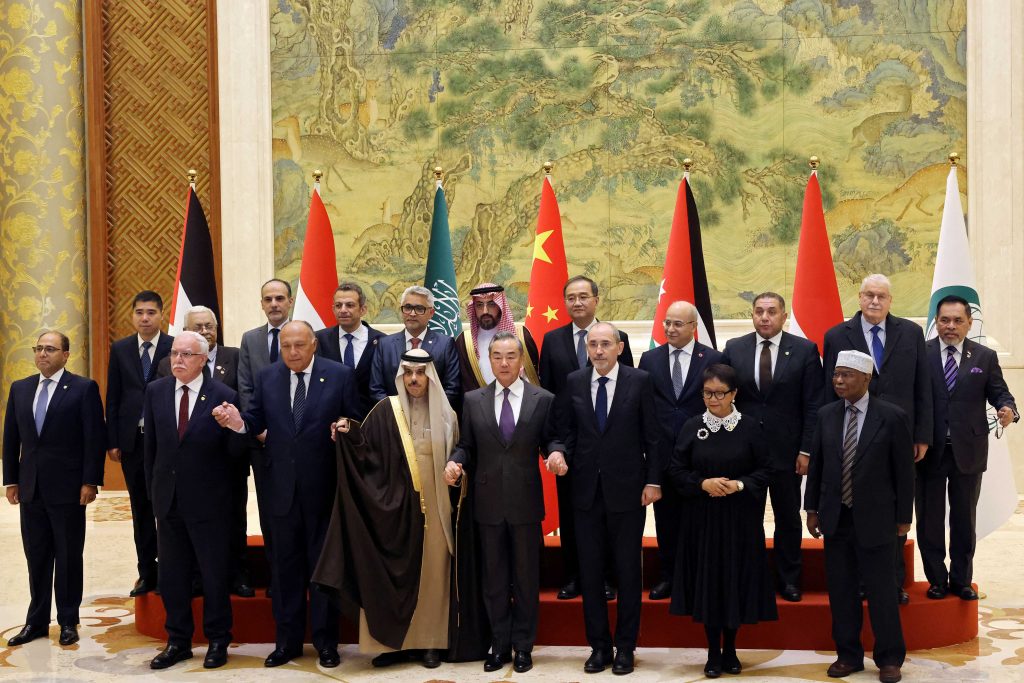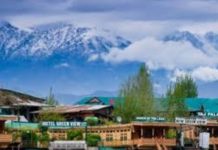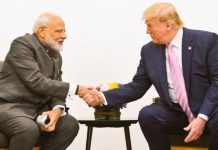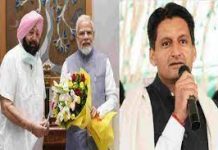
It appears Hamas finally relented to release the hostages after a large number of civilians were killed during the Israeli operations in Gaza. Hamas has claimed that more than 12,000 civilians casualties due to the Israeli shelling.
A belated ceasefire, only for four days, for the release of a few hostages and also for reaching some humanitarian and medical assistance to beleaguered civilians of the Gaza that too on the 46th day of the ongoing Israel-Hamas War, does not mean an end to the more than 70-year old conflict in West Asia. The conflict which had broken out on the early morning of October 7 with Hamas terrorists in a surprisr strike invading Israel, killing hapless civilians and kidnapping a large number of them, which included old men and women and even infants.
India and the USA called it a terror act, but the Muslim countries, though fed up with the Palestinians frequently invoking Islam for justifying Hamas’s unprovoked aggression killing more than 1200 civilians. With American warships promptly deployed in the region, Israel reciprocated by declaring a full scale conflict against the terror outfit. The demand for immediate ceasefire was raised in the UN Security Council, but there could not be any consensus. The UN members overwhelmingly passed a resolution for initiating peace process to safeguard Palestinian interests, before could make any headway for ceasefire. Israel finally agreed for a pause in the conflict, if Hamas agreed to release hostages kidnapped on October 7.
It appears Hamas finally relented to release the hostages, when a large number of civilians were killed during the Israeli operations in Gaza. Hamas has claimed that more than 12,000 civilians casualties due to the Israeli shelling.
The Arab-Iran Differences
Under the Chinese umbrella, Saudi Arabia and Iran renewed their diplomatic ties. Amidst these diplomatic ties, America allowed South Korea to transfer USD four billion to Iran for settling the pending payment of the oil it had imported. It may be recalled that Iran’s decision to go for nuclear weapons programme despite being signatory to the NPT had attracted stiff sanctions from the USA and other democracies. However, under the Biden administration, Iran was being given some economic relief; however, it used these financial relaxations for reinvigorating its proxies Hezbollah, a Shia terrorist outfit, and also Hamas, a pre-dominant Sunni organization. Hamas or Ḥarakat al-Muqāwamat al-Islāmiyyah, meaning “Islamic Resistance Movement” is associated with the Egypt-based Muslim Brotherhood. During 1980s, Israel and its supporters had backed it to challenge Yasser Arafat’s Palestine Liberation Organization (PLO). The Yasser Arafat, whose death is shrouded in mystery is believed to have been poisoned following the 2004 Oslo Accord signed between PLO and Israel.
His body was exhumed and his remains were studied and analysed at the Vaudois University Hospital Centre (CHUV) in Lausanne, Switzerland. Its report was based on a detailed examination of Arafat’s medical records, samples taken from his remains and items he had taken into the hospital in Paris where he died in 2004, revealed that he was poisoned by inducting the radioactive material, polonium-210″. Prof Paddy Regan, an expert in radiation detection and measurement at the University of Surrey in the UK, who was not involved in the investigation, has endorsed the view with a cautious statement that “they are saying the hypothesis that Arafat was poisoned with polonium-210 is valid and has not been disproven by the data. However they cannot say definitively that he was murdered.”
It is also being stated that a section of Israelis, who did not approve the Oslo Accord had been sympathetic towards Hamas. In the Palestinian legislative election held in January 2006, Hamas gained a large majority of seats defeating the ruling Fatah party. In June 2007, Hamas defeated Fatah and occupied Gaza portion of the Palestinian Territories.
During the past 16 years, Hamas has been receiving liberal funding and weapons from Iran. Initially, Iran supported Hamas after the October seven attack, however, when it failed to bring all the Arab countries under the banner of the Organization of Islamic Conference (OIC), its Supreme leader Khamenei told Hamas chief Haniyeh that since he did not notify Tehran before October 7 onslaught, Iran would not be involve itself directly in the ongoing conflict.
It is also being stated that Iran would be offering political support to Hamas, but there would be no direct support. Hamas has been asking for military intervention of Iran as well as its proxy terror group, Hezbollah, to directly join the war against Israel “in full force.”
According to a western news agency, Hezbollah’s one of the commanders stated that “We woke up to a war.”
Arab delegates visit Beijing
As a part of efforts to win support for the Palestinian cause, a delegation of Arab Islamic Foreign Ministers has already visited Beijing. After visiting Moscow, it is set to visit Delhi this week. The delegation is expected to include Saudi Foreign Minister Prince Faisal bin Farhan Al Saud, Jordanian Deputy Prime Minister and Foreign Minister Ayman Safadi, Egyptian Foreign Minister Sameh Shoukry, and Palestinian Foreign Minister Riyad Al-Maliki. In New Delhi, they will be holding a meeting with External Affairs Minister Dr S Jaishankar. The delegation is expected to travel to other global capitals as well.
Earlier, Chinese Foreign Minister Wang Yi welcomed the foreign ministers from four Arab countries and Indonesia to Beijing assuring that his country would work with “our brothers and sisters” in the Arab and Islamic world to try to end the war in Gaza as soon as possible. He further stated that the fact that ministers chose to start their tour of world capitals in Beijing, reflects China’s growing geo-political influence and its support for the Palestinians. He, however, did not mention that China is also expanding its economic ties with Israel.
The Apprehension
Prime Minister Narendra Modi’s apprehensions on the ongoing Israel-Hamas war that the conflict should not be allowed to spill further in the region was well taken by the G-20 leaders. He was taking part in G-20 Leaders’ Summit in a virtual format, while a pause of four days was being agreed upon between Israel and Hamas. The summit was attended by Russian President Vladimir Putin, Chinese Premier Li Qiang, Japan’s Fumio Kishida, Turkey’s Tayyip Erdogan, Canada’s Justin Trudeau, Australia’s Anthony Albanese and Brazil’s Luiz Inacio Lula da Silva, among others.
Responding to a question during a briefing after the summit, External Affairs Minister Dr. Jaishankar said, “India’s position is known. You heard it. Most leaders discussed the crisis… there was a broad overlap of views. While there was no specific proposal made by India, we welcomed the understanding reached after meditation by Qatar, Egypt and the US. The focus is to ensure that it does not spill over.”
The leaders while condemning the attack by Hamas, stressed on the release of hostages, a humanitarian pause to the violence that has claimed a large number of innocent civilian lives in the Gaza Strip and the need for “immediate”, “effective” humanitarian assistance to the war-torn Palestinian enclave. Modi also observed: “The insecurity and instability in the West Asia region concerns us all. Our coming together today is a sign that we are sensitive to all these issues and stand together to resolve them.”
“We believe that terrorism is unacceptable to all of us. The death of civilians, wherever they may be, is condemnable. We welcome the news of the release of hostages today, and hope for the swift release of all hostages,” he hoped.
The world leaders under various banners and associations across the continents are keeping a vigil on the events unfolding in the region, which supplies most of our energy needs. It, however, gives a strong message that only diplomacy can offer peace, whether it is the war between Ukraine and Russia or West Asian crisis.













